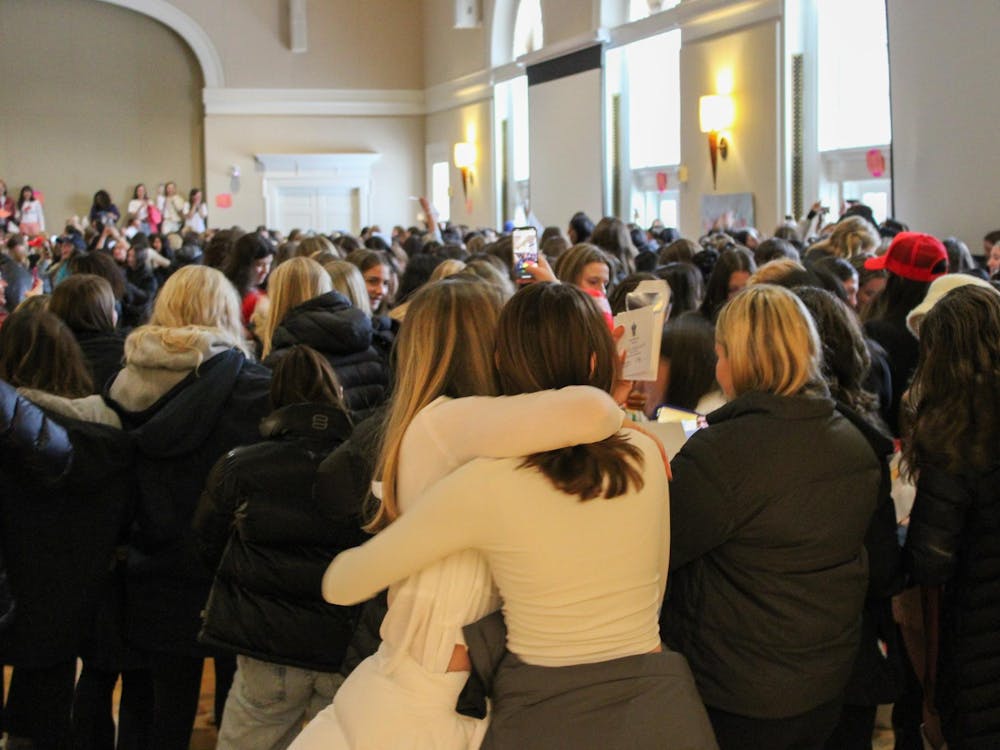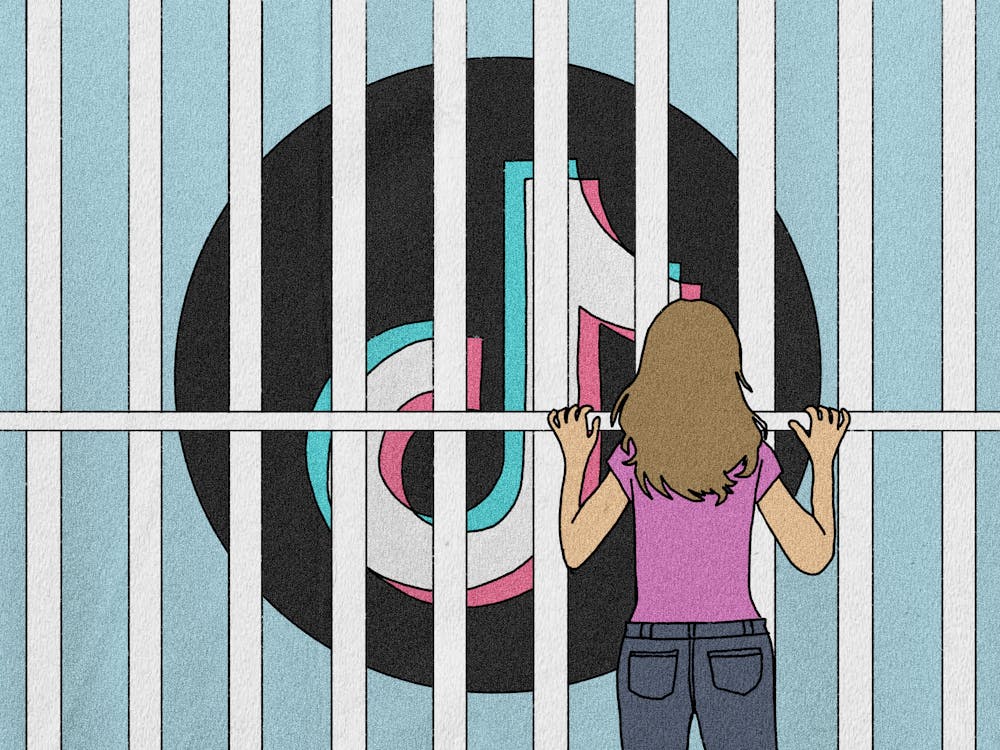Doesn't Charlottesville in February sound like the perfect place for summer vacation? For José Luis Incio, a fourth-year Law student at Pontificia Universidad Católica del Peru, it's just that -- except this vacation is of more significance than most, because Incio is at the University to discuss his experiences with terrorism in Peru.
The University is presenting a series of events about the 20 years of violence and the Truth and Reconciliation Commission, or Comisión de la Verdad y Reconciliación. The program has included movies, a photographic exhibition and a lecture by PUCP sociology professor Augusto Castro, who is also an area coordinator of the CVR.
"Unfortunately, the subject that brings me here today is of great sadness that we need to address," Castro said in his speech, noting that he would rather be at the University to talk about the beautiful aspects of the country instead.
Castro explained the process necessary to rebuild Peru, saying that "there isn't a possibility of peace without heart, feeling."
Castro spoke passionately on the subject, occasionally forgetting to pause for the translator to explain to those who were not fluent in Spanish.
The many years of terrorism began when the Peruvian Communist Party, Sendero Luminoso ("Shining Path"), declared war against the Peruvian state. The impact has been tremendous: the CVR has recorded 69,284 deaths, more than 9,000 disappearances, around 1,000 destroyed villages and about one million displaced persons.
The CVR, which submitted its report in 2003, had recorded testimonies of 17,000 people. The violence was directed at the poorest Peruvians -- 90 percent of those killed were rural indigenous people. Sendero Luminoso was found responsible for 54 percent of the recorded deaths, and the state was blamed for 38 percent.
"A country that forgets its past is condemned to repeat it," Incio quipped, explaining why he became involved in the CVR. He worked as a volunteer to collect testimonies for the CVR.
"It's going to be a long time before I can recuperate from what I've lived through and learned about humanity," Incio said. "It brings me a lot of shame, but it also makes you want to work to make it better."
As if to prove his point, Incio has been working on a project to aid the children affected by the violence and the indifference of their fellow citizens. The idea to have this program at the University was also partly his creation, along with third-year College student Maia Smith, who studied abroad in Peru last year.
Working for the CVR, Incio has traveled throughout the Peruvian countryside hearing the testimonies of the villagers, witnessing the path of destruction left behind.
"You go to the mountains and everyone would just look at you with distrust because they didn't have the sense that we were all Peruvians," Incio said.
One of the theories of the CVR was that if people talked about the traumas that happened to them, they would begin to heal. Public audiences were then held where community members would tell their stories in the open.
"Mothers cried for their sons -- I couldn't imagine how human beings had generated such brutality," Incio said. "My whole body gets chills when I think about what happened in my country, and I feel a sense of shame."
There was a large disparity, however, in the amount of terrorism between the cities and smaller communities. The violence began in the villages and moved to the cities later on. One district alone, Chungi, lost 10,000 people -- one-seventh of the total deaths throughout Peru. In contrast, there were other areas that had practically no victims.
Second-year Architecture student Angie Ferrero, who grew up in Lima, reflected on the violence in the city.
"I remember there were bombs exploding every other night," she said. "In middle school, or even before that, they would make us practice every day -- they would ring a bell randomly and you would have to hide under your desk."
Third-year College student Nicole Varon also recalled the violence in Lima, where she grew up as well.
"Nothing happened directly to any of my family members, but it would still affect your life," Varon said. "You wouldn't want to go certain places or be out late. You had to be careful."
Varon also pointed out that the cities were better able to recover from the terrorism as opposed to the villages, where they had fewer resources and were more affected by the violence.
But even in the cities where there weren't as many disturbances as in the villages, the terrorists managed to alter the lives of the citizens.
"During a period of time, what they did in Lima was from 12 at night to five in the morning, they wouldn't let you go out to the street," Ferrero said. "I was really young, so I don't remember it perfectly well, but I remember constantly thinking about the fact that something could happen."
Fourth-year College student Josh Eubank studied abroad in Peru last semester, where he met Incio and became involved in the program here at the University. While living in Lima, he came in contact with the "conos," or shanty towns, just outside the city. Due to the effects of terrorism, these sites of "desolate poverty," as Eubank described them, are some of the largest in the world.
"I have a really deep admiration for the people in Peru that are interested in restoring that community and the socio-economic well-being," Eubank said.
The program at the University is designed to gain more support and awareness of these issues in Peru.
Smith said she hopes students will realize the importance of understanding what occurred because "some of the reasons behind it don't just happen in Peru."
Smith added that the photo exhibition is going to be passed on to Brown University, possibly to George Washington University and then to universities in Germany and France.
Incio said the program should make people "think about what human dignity really means, because in Peru, they really didn't treat these people as humans."
He said he hopes the University community gains something from all the work he and the others have done.
"We hope that this program hasn't been for nothing," Incio said. "Opening one's eyes is difficult, but sometimes it's necessary."





